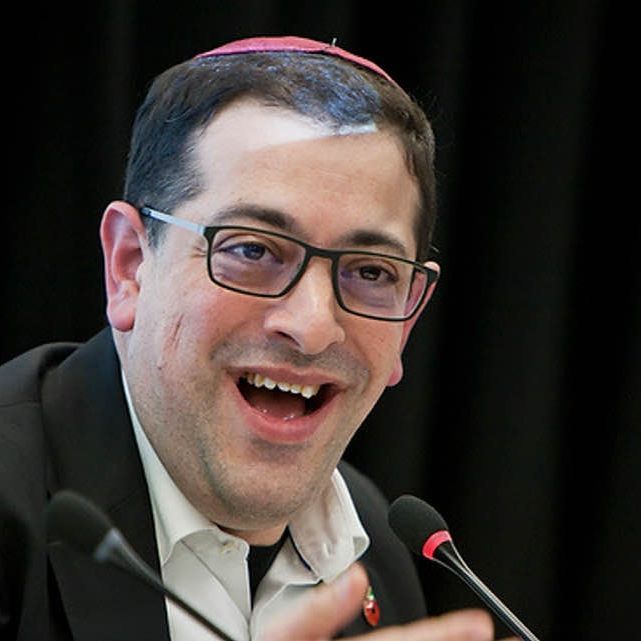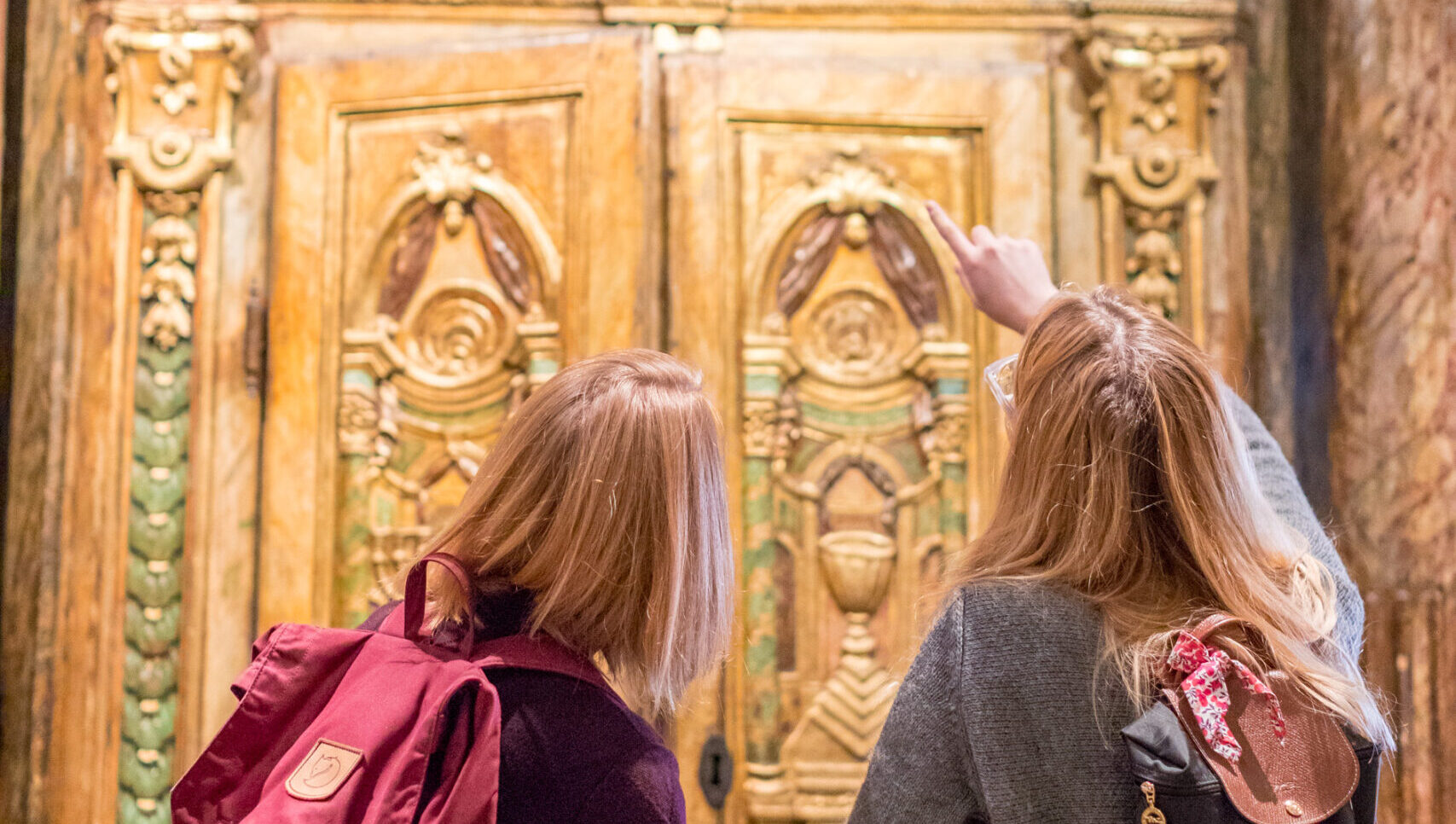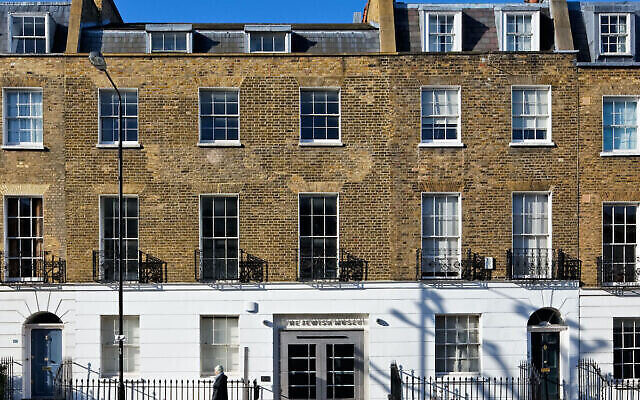Opinion: London’s Jewish Museum attracted debate and icons like Arsene Wenger
Rabbi Alex Goldberg says the institution is merely on a pause but warned that cultural funding is often a casualty of economic downturns
It is with a heavy heart that we confront the reality of the Jewish Museum in London closing its doors. This institution has not just been a museum but a lighthouse of Jewish culture, heritage, and learning in the heart of one of the world’s most cosmopolitan cities.
The news is all the more personal for my family and me, having had the honor of explaining Passover on a video feature for over fifteen years. Yesterday, they switched us off.
We reminisced, laughed, explained, and felt a bond with every single person who watched our video. This relationship wasn’t just about us imparting knowledge; it was a shared journey of understanding and embracing diverse cultures. Through this platform, we not only educated but also learned a great deal about the world outside our little corner. In a small way, we hope our video served to dismantle stereotypes and promote acceptance and appreciation of Jewish traditions.
The Jewish Museum was often a dynamic, experimental space. I fondly recall a spirited debate with the late Professor David Cesarani during a period of renovation. We deliberated over what made British Jewry so unique in the present day. Much to our amusement, the Museum staff opted to incorporate both our viewpoints in an interactive display embodying the pluralism and diversity of voices championed by the institution itself.

The Museum was a canvas for a myriad of ideas and narratives. I fondly remember being invited to the opening of “Four Four Jew”, an exhibition celebrating the intersection of Jews and football. An assortment of distinguished guests graced the event, from successful agents and club owners to cultural luminaries. One particularly memorable encounter involved a well-known agent, resplendent with an open shirt, medallion, and a cigar tucked into his top pocket, sharing hot dogs and chips with a bow-tied cultural leader, a member of the House of Lords, and the iconic Arsène Wenger. However, the jovial conversation came to an abrupt end when the bow-tied gentleman dropped a bombshell: “Well… to be honest, I support both Tottenham and Arsenal.”
Last night, as the museum’s curator flicked the off switch, it abruptly marked the end of an era that we were not prepared to consign to history. This closure stifles not only a cultural institution, but also the countless voices that found comfort within its walls. Among these voices is that of my daughter’s, who as a young child retells the Exodus from her perspective. It may now be consigned to the digital ether forever.
Though I am not acquainted with the financial intricacies of the museum, nor have I participated in its projects for about a decade, word in my professional Jewish community circle is that many of our communal institutions are grappling with resource shortages in the current climate. Cultural funding is often the first casualty of economic downturns, with priority given to core services like welfare and education.

Nevertheless, we must rethink the funding of British Jewish cultural institutions. Major Jewish museums across Europe flourish thanks to state and community collaborations. While each museum has its unique narrative, those in Paris, Berlin, Amsterdam, Prague, and the recently expanded one in Manchester remain open and vibrant. The shuttering of the Jewish Museum in London—a city home to Europe’s second largest Jewish community—signifies not only the impact of COVID-19 on our institutions, but also our outdated state funding policies.
In the past, I suggested to Andy Burnham, then the Cultural Secretary of the last Labour Government, that the Jewish Museum in London be included on the national museum list for regular grants. This coveted list is a guaranteed funding source, and it’s a list that seldom changes. While Burnham could not alter the list, he kindly awarded the museum a one-off grant. In these austere times, such changes are almost unfeasible. However, with antisemitism on the rise and old stereotypes resurfacing, highlighting the history and contributions of London’s Jewish community is more urgent than ever.
In addition, the community should explore ways to support Jewish culture more effectively as a community, using coordinated strategies similar to those once employed by welfare institutions and schools.
Despite the sorrow, it is crucial to remember that ideas are not as finite as buildings. The Jewish Museum has ignited discussions and understanding that continue to reverberate worldwide.
As we ponder the museum’s closure, we take solace in knowing that this is not the end. In the digital age, knowledge knows no borders, and cultural exchange happens in real time. The spirit of the Jewish Museum in London will find new avenues for expression.
Yesterday, they flipped the switch, and it may seem like a final curtain call. But in truth, it’s just an intermission. The story is far from over; it’s merely adapting, ready to evolve into a new form. The Jewish Museum in London has sown seeds that will continue to flourish, enhancing the vibrant tapestry of global Jewish heritage. For this, we will forever be indebted.
- Rabbi Alex Goldberg is Dean of Religious Life and Belief at the University of Surrey

Thank you for helping to make Jewish News the leading source of news and opinion for the UK Jewish community. Today we're asking for your invaluable help to continue putting our community first in everything we do.
For as little as £5 a month you can help sustain the vital work we do in celebrating and standing up for Jewish life in Britain.
Jewish News holds our community together and keeps us connected. Like a synagogue, it’s where people turn to feel part of something bigger. It also proudly shows the rest of Britain the vibrancy and rich culture of modern Jewish life.
You can make a quick and easy one-off or monthly contribution of £5, £10, £20 or any other sum you’re comfortable with.
100% of your donation will help us continue celebrating our community, in all its dynamic diversity...
Engaging
Being a community platform means so much more than producing a newspaper and website. One of our proudest roles is media partnering with our invaluable charities to amplify the outstanding work they do to help us all.
Celebrating
There’s no shortage of oys in the world but Jewish News takes every opportunity to celebrate the joys too, through projects like Night of Heroes, 40 Under 40 and other compelling countdowns that make the community kvell with pride.
Pioneering
In the first collaboration between media outlets from different faiths, Jewish News worked with British Muslim TV and Church Times to produce a list of young activists leading the way on interfaith understanding.
Campaigning
Royal Mail issued a stamp honouring Holocaust hero Sir Nicholas Winton after a Jewish News campaign attracted more than 100,000 backers. Jewish Newsalso produces special editions of the paper highlighting pressing issues including mental health and Holocaust remembrance.
Easy access
In an age when news is readily accessible, Jewish News provides high-quality content free online and offline, removing any financial barriers to connecting people.
Voice of our community to wider society
The Jewish News team regularly appears on TV, radio and on the pages of the national press to comment on stories about the Jewish community. Easy access to the paper on the streets of London also means Jewish News provides an invaluable window into the community for the country at large.
We hope you agree all this is worth preserving.






















